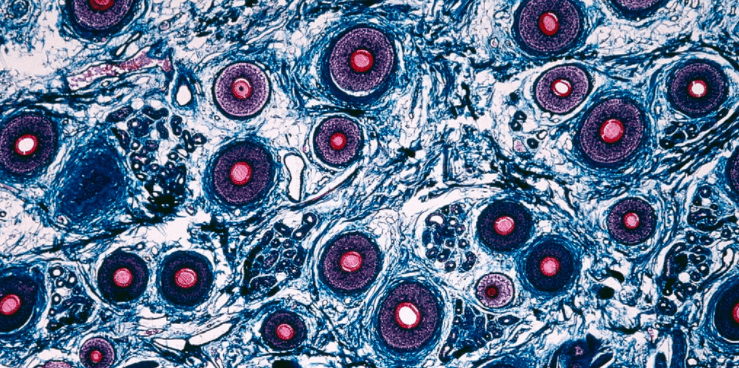
27 Jan Here’s Why How You Breathe Matters
“Listen, are you breathing just a little and calling it a life.” – Mary Oliver
Stress is ubiquitous, it’s part of the fiber of life. How do we manage and deal with stress? One key way is through effective breathing.
A large body of evidence suggests that stress-related diseases emerge, predominantly, out of the fact that we so often activate a physiological system that has evolved for responding to acute physical emergencies: the problem is, we turn it on for months on end…worrying about mortgages, relationships and promotions. – From, “Why Zebras Don’t Get Ulcers” by Robert Sapolsky
One of the most basic primary ways to regulate that physiological system is to breathe. I love talking about breathing because we really speak in breathing metaphors. So breathing really reflects how we are living and how we are orienting to our life.
Here’s some examples of breathing metaphors:
I feel inspired/uninspired (If we feel uninspired, what does that mean? Perhaps we are not breathing adequately?)
She’s a breath of fresh air
That’s a sigh of relief
It made me catch my breath
I need some breathing space (What is that doing to our physiology??)
He’s full of hot air
Explore how you are breathing. It’s important to think about the way you are breathing. Immediate symptoms of hyperventilation may include the following:
Muscle tension, spasm or tremors
Shortness of breath (without exertion)
Catching self not breathing
Difficulty catching breath
Sensation of lump in throat or chest
Sensation of a band across the chest
Constriction in chest
Stitching or stabbing in ribs or pain in side
Tightness, pressure or pain in chest
Frequent sighing or wheezing
Chronic cough
Chronic mouth breathing
Increased asthma symptoms
Elevated or erratic heart rate
Heart palpitations
Nausea
Blurred vision
Dizziness, vertigo, light-headedness, spaced out
Difficulty concentration
Most of the people that I treat in my clinic do not have acute hyperventilation, but they often have a number of symptoms as a result of chronic hyperventilation. These symptoms of chronic hyperventilation. If we breath dysfunctionally – meaning we breathe in more oxygen or blow off too much carbon dioxide, then we hyperventilate. And after 3 minutes (again, it doesn’t need to be that acute hyperventilation), a sample list of what can happen is shown below.
These are longer term symptoms of chronic hyperventilation. If you find you breathe really quickly or take really big breaths in (your inhale is longer than your exhale), then these are some of the symptoms that may develop:
Panic attacks and anxiety
Chronic anger
Attention disorders
Learning issues
Memory difficulties
Hypertension
Arrhythmias
Constipation/IBD
Asthma and difficulty breathing
Headaches & migraines
Sleep disorder – snoring, apnea
Insomnia & waking fatigued
Chronic fatigue
Chronic sinusitis
Recurrent colds & allergies
TMJ or tightness in jaw
Cold hands & feet
Sexual dysfunction
Naturopathic physicians love to talk about treating the whole person, not just treating the symptoms. I am here to say that in my whole world view, breathing is an important component of restoring good health.
Nijmegen Questionnaire can be found online. It is a list of symptoms that can result from chronic hyperventilation. Some studies suggest that perhaps 4-10% of the population hyperventilate on a chronic basis. If your score is greater than 23, you may possibly be hyperventilating. Please note: It is subjective and not diagnostic of a specific syndrome. That is, a single criteria for evaluating dysfunctional breathing is not sufficient.
What is Slow-Paced Breathing?
In medical texts, normal breathing range is between 14-18 breaths per minute. Slow paced breathing is in the range of about 6 breaths per minute – a 5 second inhale and 5 second exhale. *We don’t want our inhale ever to be longer (or of a larger volume), because that would be hyperventilation. Or some people prefer, the exhale to be a bit longer, a 4 sec inhale and a 6 sec exhale. This does a number of things for the body.
First, it improves our body’s ability to improve oxygen use by helping us get the blood to flow to our bodies properly and saturate our tissues adequately. Thereby, helping us tolerate exercise and prevent shortness of breath.
Resonant breathing is another term for this. The reference is because it results in oscillation of the breath. There’s a natural oscillating system that happens between our heart rate and breathing: inhale -> HR increases, BP rises 5 seconds later; Exhale-> HR decreases, BP falls ~ 5 sec later. When we breathe at 5 seconds in and 5 seconds out, we are stimulating the whole nervous system to work in concert together.
What’s interesting is yogis and zen meditators when studied are found to breathe around 6 breaths per minute. There was an interesting study of those doing the rosary, and they found that their whole nervous system improved, and their heart rate and blood pressure decreased. They were breathing at a rate of 6 breaths per minute, even when reciting the rosary slowly.
The mind-body-energy shift is an important component of naturopathic medicine. Our sympathetic nervous system increases when we breath in and when we exhale, our parasympathetic system increases. Whether you have chronic or acute health symptoms, addressing how you breathe will help offer your nervous system deep rest and should be an integral part of your health treatment protocol. Studies suggest that the pre-fontal cortex can get activated with resonant breathing, this area increases our executive function, calms us, and helps with thinking. At the same time that it gets activated, the fear centre of our brain (amygdala) decreases. So breathing this way can be a very impactful way to help us cope with stress.
As naturopathic physicians, we want to help all of our patients and starting with the basics can help us build a good foundation for optimizing health. We always talk about diet & food because it’s very important, but we put 6 x the weight of food into our body through air. So in my estimation, discussing the importance of breathing is equally valid.
How we breath impacts our entire nervous system, so let’s try sitting upright and improve our breathing!
If you or someone you know can benefit from naturopathic care, feel free to drop me a line on the “contact us” page on this site. Naturopathic medicine is based on individualizing health through a focused, efficient means that address the underlying cause of dis-ease to ultimately help people gain more healthy years doing what they love in their personal and professional lives.
I treat patients locally at my naturopathic practice in Vancouver, B.C. and worldwide via phone or Skype.
To honoring your health potential!
Dr Tasnim Adatya
Licensed Naturopathic Physician, Registered Acupuncturist, Author, and Health Educator

